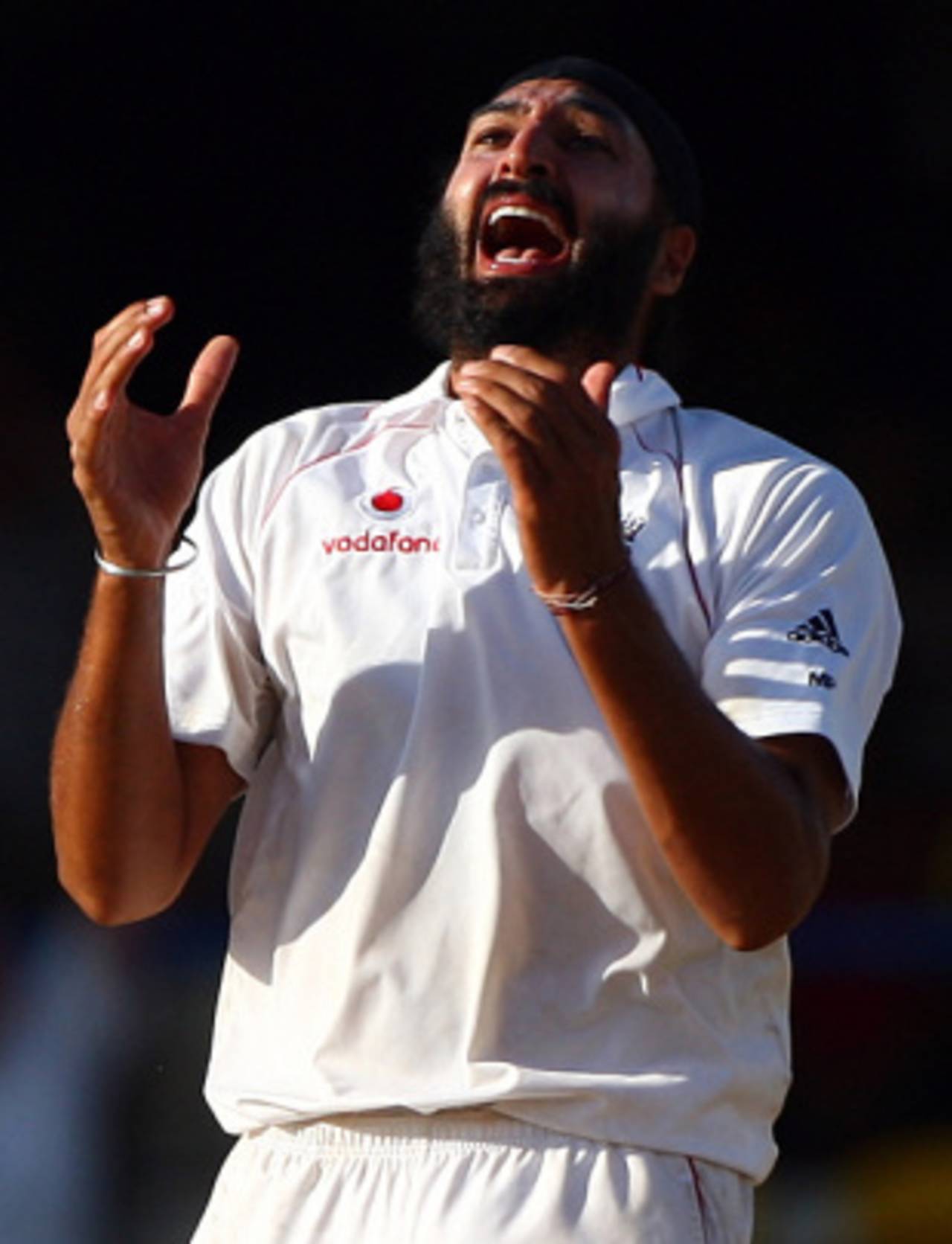This may have been the most heavily reported Test match in history. The British newspapers, which have mostly scaled down their cricket coverage, veered the other way when the magic word Ashes came along. Last weekend you couldn't move for preview supplements, and once the match began, some papers were running not two sidebars a day, not four, but six. Even a cricket-loving newspaper junkie was struggling to keep up. The sports editors were rewarded with a thrilling and very British finish as a packed house greeted every dogged defensive shot like a six. And yet still, among all the thousands of well-chosen words that poured out, some things went unsaid. There was an elephant in the media centre. It was this: England picked the wrong team.
The selectors, once all-purpose whipping boys, tend to get an easy ride these days. Fans and pundits tend to agree that there are no alternatives to the regular batsmen, apart from Ian Bell. It's acknowledged that there is competition for bowling slots, but the selectors' choice of five for this match still went widely unquestioned. So let's look at what they did.
They dropped Tim Bresnan for Andrew Flintoff - no arguing with that; when a star is fit again, the understudy returns to the wings. But England also dropped Graham Onions for Monty Panesar. This meant sacrificing a bowler in top form for one having a mid-career crisis. The decision didn't just fly in the face of common sense: it ignored the modern truth that turning pitches often help the wily seamer too. On form, Onions should have been in the first three bowlers picked for Cardiff, with Jimmy Anderson and Graeme Swann.
It used to be assumed that if England played badly, heads would roll. That led to far too much chopping and changing, and the policy was rightly torn up. But during the David Graveney era, the selectors swung too far the other way. Even Graveney himself went on too long, keeping the chairmanship for nearly 11 years. Geoff Miller has maintained Graveney's conservatism, most strikingly when he handed central contracts to Michael Vaughan and Steve Harmison last autumn. England show ruthlessness very occasionally, as when Vaughan dropped Harmison and Matthew Hoggard for Anderson and Stuart Broad in New Zealand. But mostly they stick rather than twist. And the worse they play, the less likely they are to make changes. On Saturday, when England were rubbish, the ex-pros formed a chorus to say "Don't panic".
England show ruthlessness very occasionally. But mostly they stick rather than twist. And the worse they play, the less likely they are to make changes
Nobody was suggesting panicking. Just taking a long cool look at whether this was really the best XI. Let's consider the bowlers first, as they win matches. England went for quantity and solidity rather than quality and incisiveness. Three of their five choices were essentially defensive - Flintoff, Broad and Panesar. In 41 appearances between them since October 2005, Flintoff and Broad have only one five-for. Both can summon a cutting edge when they have to, but they seldom sustain it for a whole innings. Broad is, as yet, a fourth seamer who has accidentally found himself taking the new ball. Panesar has no shortage of five-fors - eight in 39 Tests - but he needs a bouncy surface to impose himself, which is why he has flourished at Old Trafford and Perth and struggled in the subcontinent. On this curry of a pitch, even Paul Collingwood was a better bet as a bowler than Monty.
It's not how many bowlers you pick: it's how many attacking bowlers. England's quintet looked anodyne before the match began, although not even a sceptic could have foreseen how toothless they would turn out to be. As it was, they batted better than they bowled. In fact they batted better than most of the batsmen; over the two innings, the last five wickets produced more runs than the first five - 194 + 182, easily beating 245 + 70.
The idea that Bell is the only alternative to the batting also needs scrutinising. If there is nobody else, it's because Vaughan has retired, Rob Key is out of form, and the selectors have shown blind loyalty to one or two others. They have lavished 44 Test caps on Alastair Cook, who seldom turns a match. Shane Warne said Monty hadn't played 33 Tests, he had played the same Test 33 times, which was harsh but fair. You could say the same about Cook, who started brightly but has never gone up a gear. Simon Katich, who is no more talented, now reels off match-winning hundreds. Cook has made a hundred in an England win just three times, two of them against West Indies, one against a weakened Pakistan.
When you don't have a born No. 3, a Ponting or a Dravid, the classic plan B is to pick a third opener, a David Boon or a Mark Butcher. England don't have a third opener in sight. Why? Because they have picked Cook so often. England's five specialist batsmen have the same problem as their five bowlers: most of them can't take a match by the scruff of the neck.
Kevin Pietersen can, obviously, when not going through with a crazy shot like a bore in the bar who insists on finishing his point. Ravi Bopara has the personality, but it would be asking a lot for him to do it against Australia at this stage (when Ponting was his age, he was down at No. 6). Strauss, Cook and Collingwood - heroic though he was yesterday - strike fear into nobody. Like Flintoff, Broad and Panesar, they shouldn't all be in the same team. If England beat Australia with this line-up, they will be defying gravity.
Tim de Lisle is the editor of Intelligent Life magazine and a former editor of Wisden
